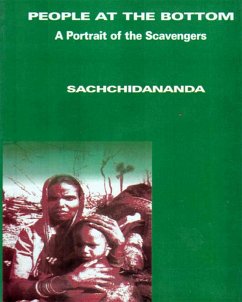Scavengers in India constitute the lowest rung of Indian society. They are, infact, the people at the bottom. They are the real Antyaja as conceived by Mahatma Gandhi. Although the scavengers are with us from the beginning of civilisation, there are no detailed study of their living and working conditions, their troubles and tribulations, their hopes and frustrations. The cluster of castes engaged in this profession has been looking to the Indian civil society for their salvation. In spite of the recommendations of many committees and commissions they have not been liberated from the shakles of poverty and pollution. They have been forced to live a life of degradation bereft of human dignity. Their state is indeed a living disgrace for the country. The work is based on an empirical study covering 2500 households in urban and rural settings in Bihar. It is intended to give a glimpse of the living and working conditions of the scavenger castes and to bring out the impact of different welfare programmes for their liberation and rehabilitation in the gender and human rights perspectives. Efforts to bring the scavengers from the margin to mainstream of Indian society and ultimately to empower them have also been assessed in terms of the success achieved. Towards the end of the study a number of steps have been suggested to speed up this process.
Dieser Download kann aus rechtlichen Gründen nur mit Rechnungsadresse in A, B, BG, CY, CZ, D, DK, EW, E, FIN, F, GR, HR, H, IRL, I, LT, L, LR, M, NL, PL, P, R, S, SLO, SK ausgeliefert werden.









